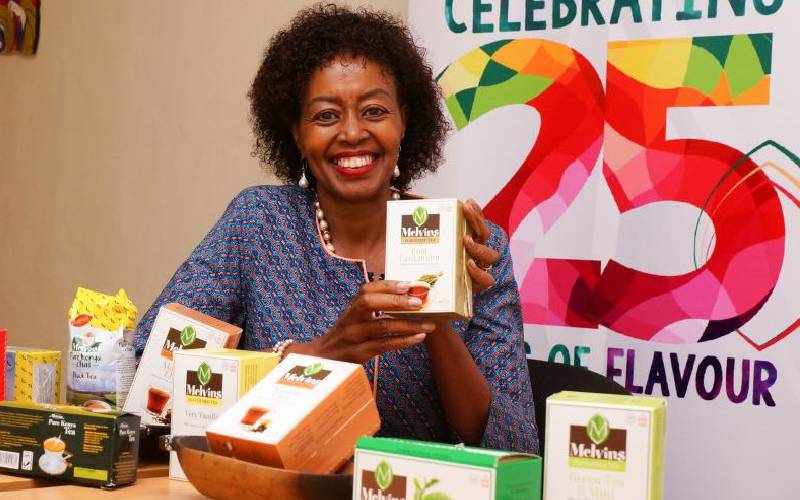×
The Standard e-Paper
Smart Minds Choose Us

Flora Mutahi, the Chief Executive Officer and founder of Melvin Marsh International.[Nanjinia Wamuswa, Standard]
Underneath the fruity scent lies the homely smell of loose tea that hangs over the hallways of the Melvins Tea headquarters in Nairobi’s Industrial Area.